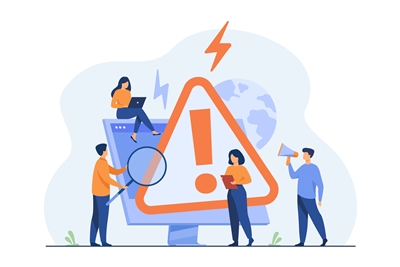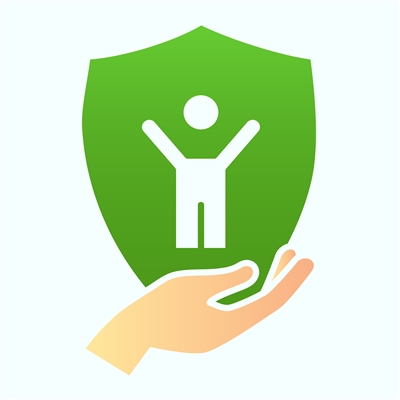Internet Safety - Ensuring you Remain Safe Online

The internet is a wonderful resource, a boundless source of learning and entertainment, but it`s important you are aware of the potential risks being online presents, in order to ensure both your family and yourself remain safe.
For many adults social media may still feel like a novelty, but it`s worth remembering for most children there has never been a time when these technologies were not around. Having been born into an era where facebook, twitter, and many other online platforms are ubiquitous, children frequently possess a natural online facility that eludes many adults. Unfortunately this easy proficiency can lead to complacency, and a lack of circumspection to the potential dangers being online presents.
Online gaming, internet chatrooms, photo sharing websites, social media - these are all typical online activities, and they each allow your child to potentially interact with a total stranger. For this reason there are a number of important codes of practice that should be adhered to when using the internet:
Never give out any personal information

Your full name, date of birth, address, or any other kind of personal information should never be disclosed to another individual while online. There is no legitimate reason why a stranger on a chatroom or gaming site would need such information, and anyone requesting personal details should be considered suspicious.
When signing up to certain websites however (Facebook, Amazon etc) you will likely have to provide some personal information. These sites all have a legally set minimum age (13 in the UK). As long as you meet the age criteria, and the site is reputable, providing such details should carry no risk - it is when interacting with an individual (through social media, or email) that personal details must never be shared.
Cyberbullying
Internet bullying takes many forms, but the important thing to remember is whether the bullying consists of malicious messages on a gaming platform, or derisive comments on social media, it is unacceptable.
Cyberbullying very often occurs on phones or tablets, devices children have continual access to. This means the victim is always `within reach` of the bullies, and the abuse can extend right into their homes, without knowledge of their parents.
A sudden and unexpected change in a child`s character, as well as a fearful compulsion to continually check their phone, can both be indicators they are being bullied. The methods employed by cyber bullies are often subtle, especially to parents who may have limited understanding of how social media sites work. Tagging or linking someone`s online profile to embarrassing or demeaning content is a common methodology, along with identifying them with embarrassing memes. If you think your child is being bullied online talk them them about it, reassuring them that such behaviour is not acceptable, and they are not to blame. Simply banning them from using their phone or tablet may not be an ideal solution, as they will probably be able to log into their accounts elsewhere.
Inappropriate content
Inappropriate content can take the form of explicit imagery, such as pornographic or violent media; and it can also be politically extreme content, which can lead to radicalisation. Many popular websites such as facebook, YouTube or instagram will be relatively safe from extreme content, as users will be encouraged to flag up and report any video or image content that breaks community guidelines. Unfortunately there exist many websites with no such regulations, and even on popular platforms it is still possible for individuals to create groups to privately share inappropriate content.
As a parent you should explain to your child that, though the internet is a wonderful platform, it contains certain areas that are only meant for adults, and if they see anything that worries or upsets them they should leave the website immediately, and inform you about it. Let them know also they can always simply shut the screen or turn the device off if they observe something they don`t like.
Be cautious before entering payment details
Before providing a website with your card details you should be mindful to ascertain its authenticity. A quick way to gauge this is to see if there are any reviews of the company online. Simply entering the company name in to a search engine should enable you to find the testimonies of any previous customers. Trust Pilot is a well known review website, providing a simple star rating letting you know the experiences others have had.
Another useful check is to inspect the url of the website - that being the www. address, most likely showing somewhere near the top of your web browser page. If you see https:// as opposed to simply http:// you will know the site owner is using a secured encryption process to protect its users from hackers. While this does not guarantee the site is not fraudulent, it is generally considered to be an indicator that the company is a reputable one.
The following links should be consulted if you would like to learn more about staying safe online:
https://www.thinkuknow.co.uk/
https://www.nspcc.org.uk/
https://www.childnet.com/
https://www.ltai.info/
https://paceuk.info/
https://www.internetmatters.org/advice/

 Add a Comment
Add a Comment